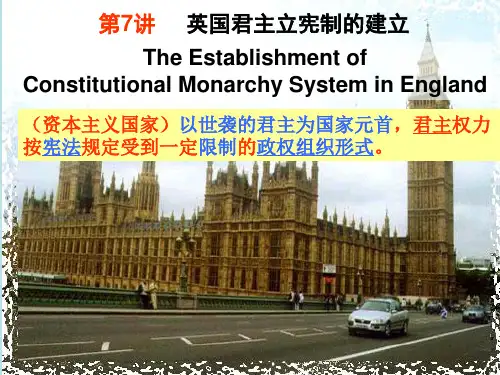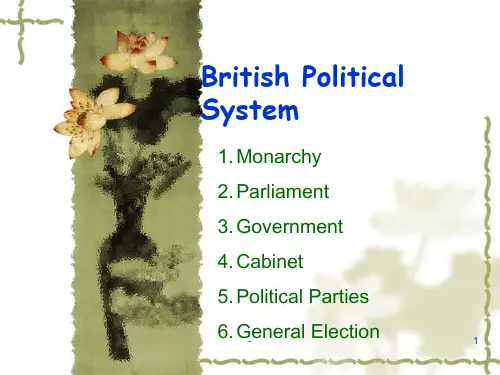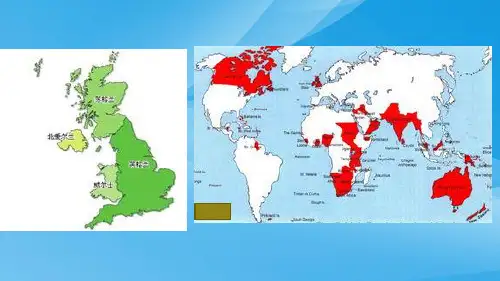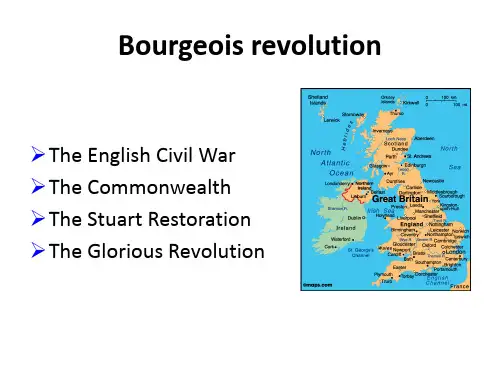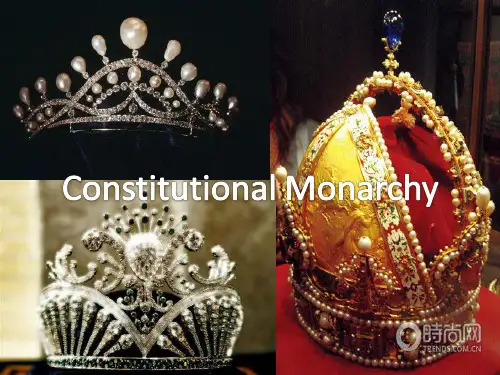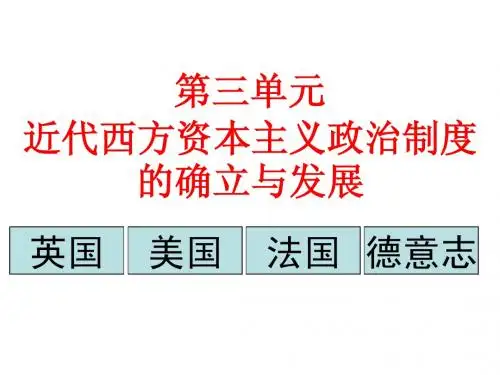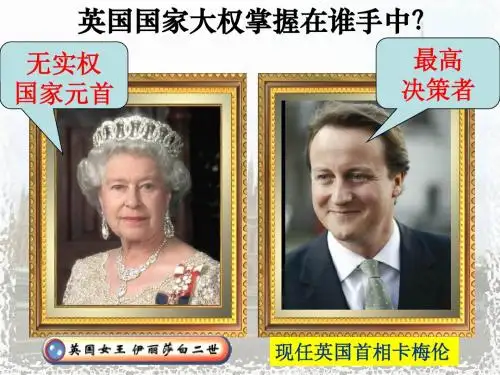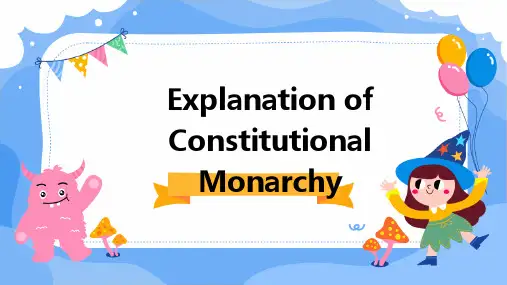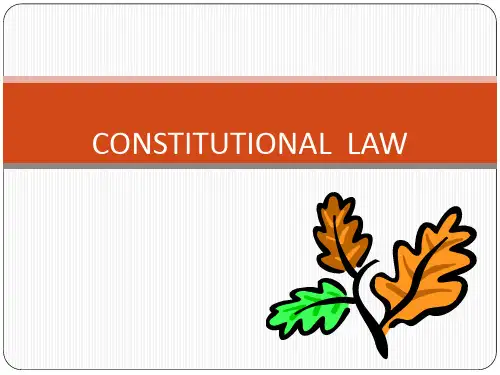- 1、下载文档前请自行甄别文档内容的完整性,平台不提供额外的编辑、内容补充、找答案等附加服务。
- 2、"仅部分预览"的文档,不可在线预览部分如存在完整性等问题,可反馈申请退款(可完整预览的文档不适用该条件!)。
- 3、如文档侵犯您的权益,请联系客服反馈,我们会尽快为您处理(人工客服工作时间:9:00-18:30)。
Think about the relevance of the monarchy in the 21st Century
Constitutional Monarchy
Constitutional monarchy is a form of government in which a king or queen acts as Head of State.
- A constitutional monarchy also provides stability, continuity and a national focus, as the Head of State remains the same even as governments change.
U.K. Parliament
Parliament is divided into two main Houses – the upper house (the House of Lords), and the lower house (the House of Commons). The Sovereign is the head of Parliament.
Parliament is based in Westminster Palace.
The Upper House – The House of Lords
The Right Honourable The Lords Spiritual and Temporal in Parliament Assembled
783 Seats (positions) Who? Lords Temporal: Peers of the realm: life peers and hereditary peers (Sir, Lord, Baron, Duke etc) Lords Spiritual: senior members of the Church of England What? - Much less power than the House of Commons - Discuss, debate and vote on new laws - if they vote against a new law, they can only stop it from being passed for 2 years House of Lords Act 1999 - Before this, all hereditary peers were automatically allowed to sit in Parliament - Now, life peers automatically allowed to sit - 92 hereditary peers were elected (by life peers) and can also sit in Parliament
Her full title, by virtue of the Royal Titles Act of 1953, is: "Elizabeth the Second, by the Grace of God of the United Kingdom of Great Britain and Northern Ireland and of Her other Realms and Territories Queen, Head of the Commonwealth, Defender of the Faith"
- A constitutional monarchy also provides stability, continuity and a national focus, as the Head of State remains the same even as governments change.
- It is the elected government, not the Monarch, who has the ability to make and pass laws. - As a system of government, constitutional monarchy separates the Head of State’s ceremonial and official duties from party politics.
- As a constitutional monarch, the Sovereign must remain politically neutral.
- On almost all matters the Sovereign acts on the advice of ministers. However, the Sovereign retains an important political role as Head of State, formally appointing prime ministers, formally approving legislation and bestowing honours.
The leader of the ruling party is the Prime Minister. He/she is chosen by their party, and cannot make decisions without support of the House of Commons.
- The Sovereign/Monarch governs according to the constitution - that is, according to rules, rather than according to his or her own free will. There isn't a single constitution in the U.K, but a series of laws which must be followed.
U.K. Coalition Government
The last General Election (in 2010) resulted in a hung parliament. This means that none of the parties received an absolute majority (over 50% 326 seats). The Conservative Party won the highest number of seats (306). The Conservatives made an agreement with the Liberal Democrats to form a coalition government, so together they could achieve an absolute majority. The Labour Party won the next highest number of seats – 258 – so they became the Opposition.
- It is the elected government, not the Monarch, who has the ability to make and pass laws. - As a system of government, constitutional monarchy separates the Head of State’s ceremonial and official duties from party politics.
- The Sovereign/Monarch governs according to the constitution - that is, according to rules, rather than according to his or her own free will. There isn't a single constitution in the U.K, but a series of laws which must be followed.
Constitutional Monarchy
Constitutional monarchy is a form of government in which a king or queen acts as Head of State.
- It is the elected government, not the Monarch, who has the ability to make and pass laws. - As a system of government, constitutional monarchy separates the Head of State’s ceremonial and official duties from party politics.
The Lower House – the House of Commons
The Honourable The Commons in Parliament Assembled
650 Seats (positions) Who? The Government A minister is chosen from each constituency by the electorate, and sit in the House of Commons (they are called MPs – Members of Parliament) MPs belong to a political party (there are several parties, each with their own opinions and aims). A General Election takes place every 5 years to decide which political party will lead the Government. Usually, the party with the highest number of votes leads the government, with the next highest party in the opposition. The ruling party and the opposition sit together to discuss and make laws.
